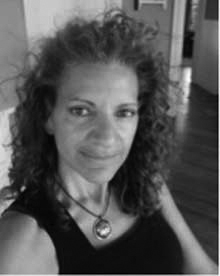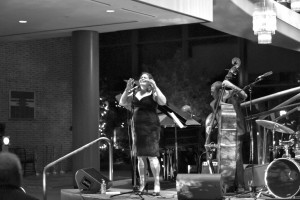Australian director Cate Shortland’s second foray into feature film has produced the visceral “Lore.” The period piece is set in Germany immediately after the death of Hitler, and tells the story of a family of children traveling over 500 miles to reach safe haven in Hamburg.
“Lore” is short for Hannelore, the name of our heroine, a 14 year-old daughter of Nazi parents, suddenly forced into a role of adulthood. While she was a member of Hitler Youth, Lore’s father was deeply involved in the Final Solution, and her mother equally complicit. Before leaving for their own punishment, the parents warn Lore to remember who she is, an ominous enough beginning by itself, but heightened by the audience’s modern understanding of exactly how wrong everything is that Lore has been taught.
The film has a sort of fairy-tale superstructure: the parents are gone and a family of five children, one an infant, must travel by foot through the black forest to make it to grandmother’s house on the other side of the country. And, like any good fairy tale, there’s something rotted and evil at its core: a flailing country’s guilt and confusion over what has happened, what they have done and their uncertainty about what will happen next. Germany has been divided up by the Allies and there are borders to be crossed and guards to watch out for, and the children, we soon realize, are woefully unprepared.
Then, help arrives from the least likely quarter: a boy of little more than Lore’s age, called Thomas, steps in to prevent the family from disaster and becomes their new leader. The problem? Lore has seen his papers, which label him a Jew. As he provides again and again for her family, Lore is torn between gratitude to be relieved of so heavy a burden and the hate that she has been bred to harbor for him. Her confusion is compounded by her burgeoning sexual awareness, her conflicted hatred of his people and her own mounting desperation as food becomes scarcer and the journey seems never-ending.
The scenes of the countryside are very revealing, especially as we see them through the shocked eyes of Lore and the half-comprehending viewpoints of the younger siblings. One woman, who houses the children for a day speaks of the beloved fuehrer, and how “he loved us all so much.” Another group of disbelieving people discuss the “faked” pictures from the internment camps, a conversation some continue today. Bodies are discovered in empty buildings, full suitcases dropped the moment they could no longer be carried; it is a state of flux and still the children march on. They are forced to commit their own sorts of atrocities in the name of survival and after one particularly brutal scene, Lore asks Thomas “What have we done?” She means it immediately, of course, but that question hovers over the entire film, and continues to be asked in our own time.
Saskia Rosendahl, the newcomer playing Lore, delivers an interesting and compelling performance, effectively coupling rage and doubt in the moments where she is given dialogue to voice her character’s feelings. Most of her role is silent contemplation of her new discoveries or the explanations she gives her siblings for the things they have seen. Her beauty, even as their journey continues and the children grow more and more ill, seems pointed and poetic.
Shortland’s ending is unapologetic and unromantic, with little evidence that the characters have learned all the lessons we wanted them to. World War II period pieces abound, this is not the best or the worst of the lot. “Lore” is, as the title suggests, a story, it’s just not the one I was expecting.







